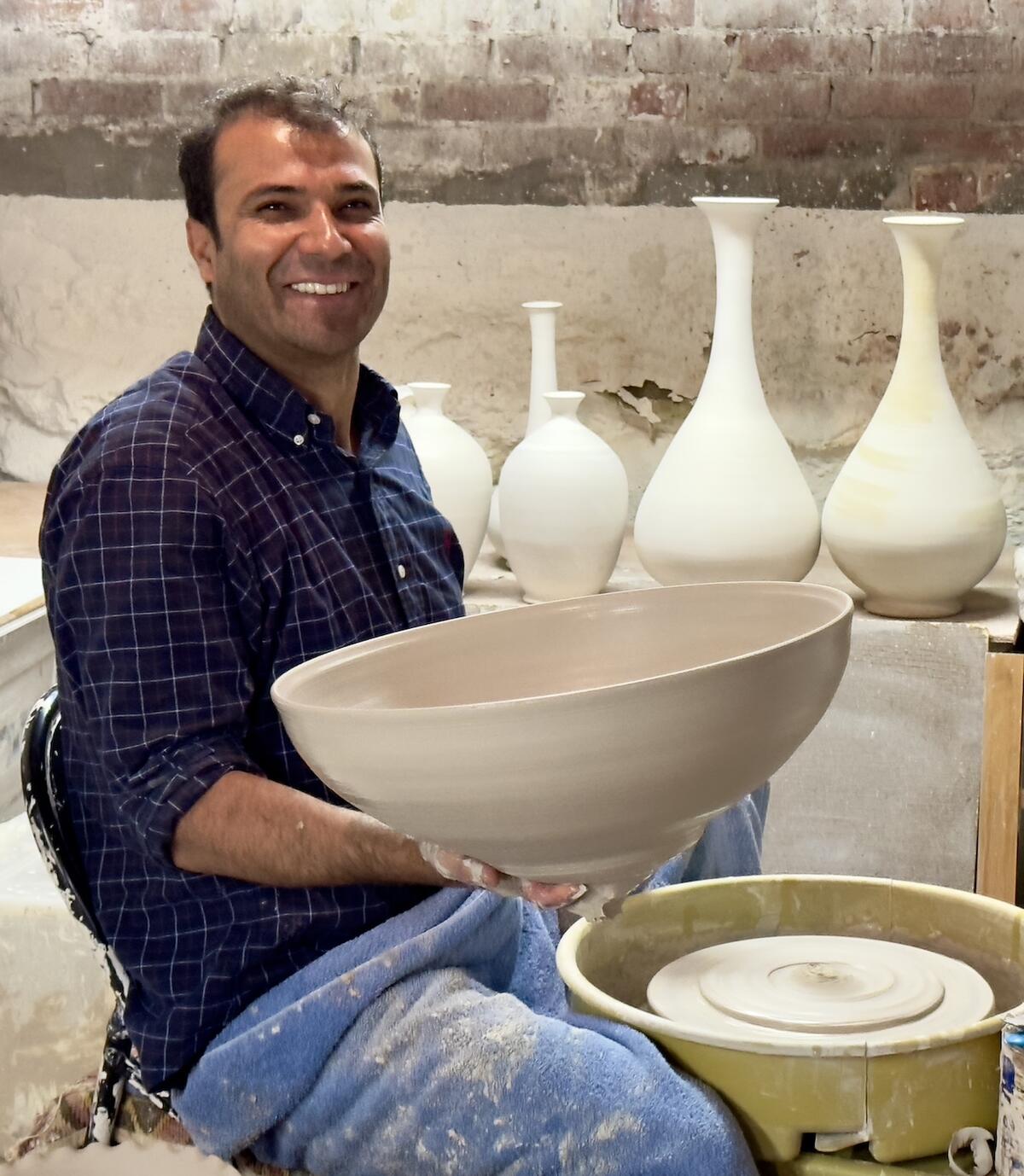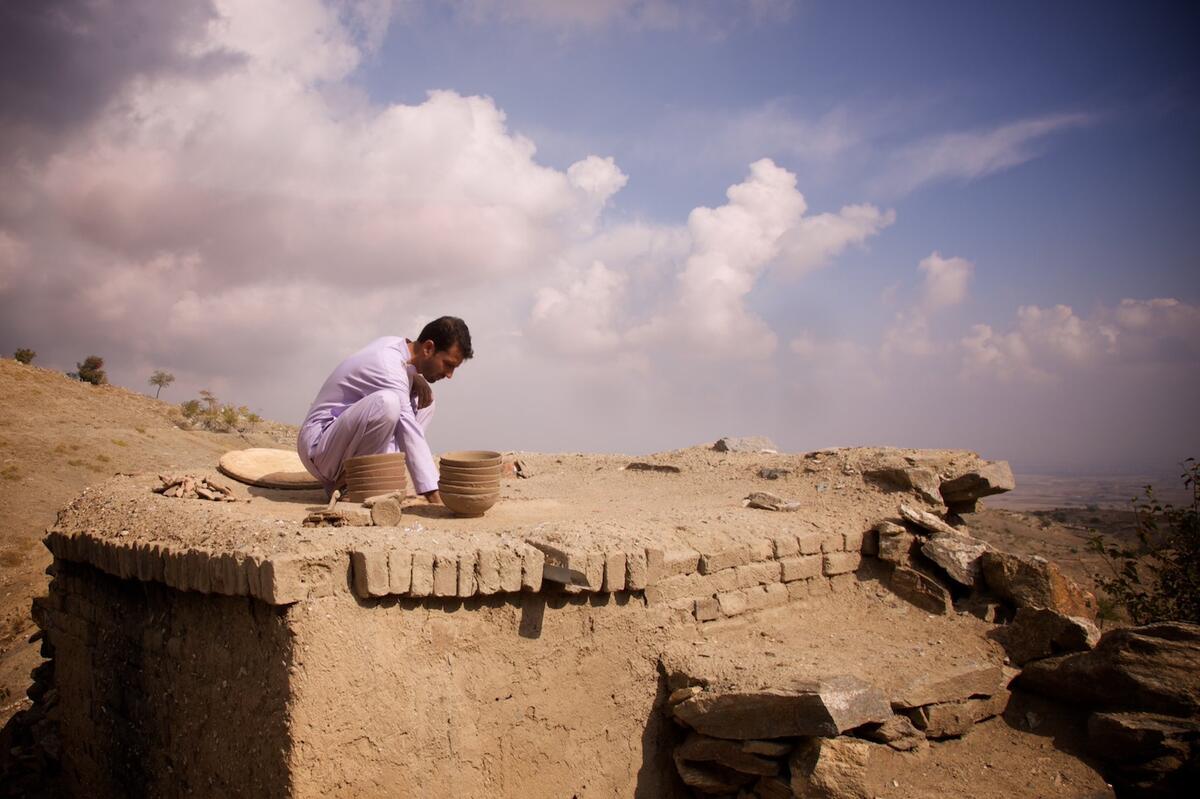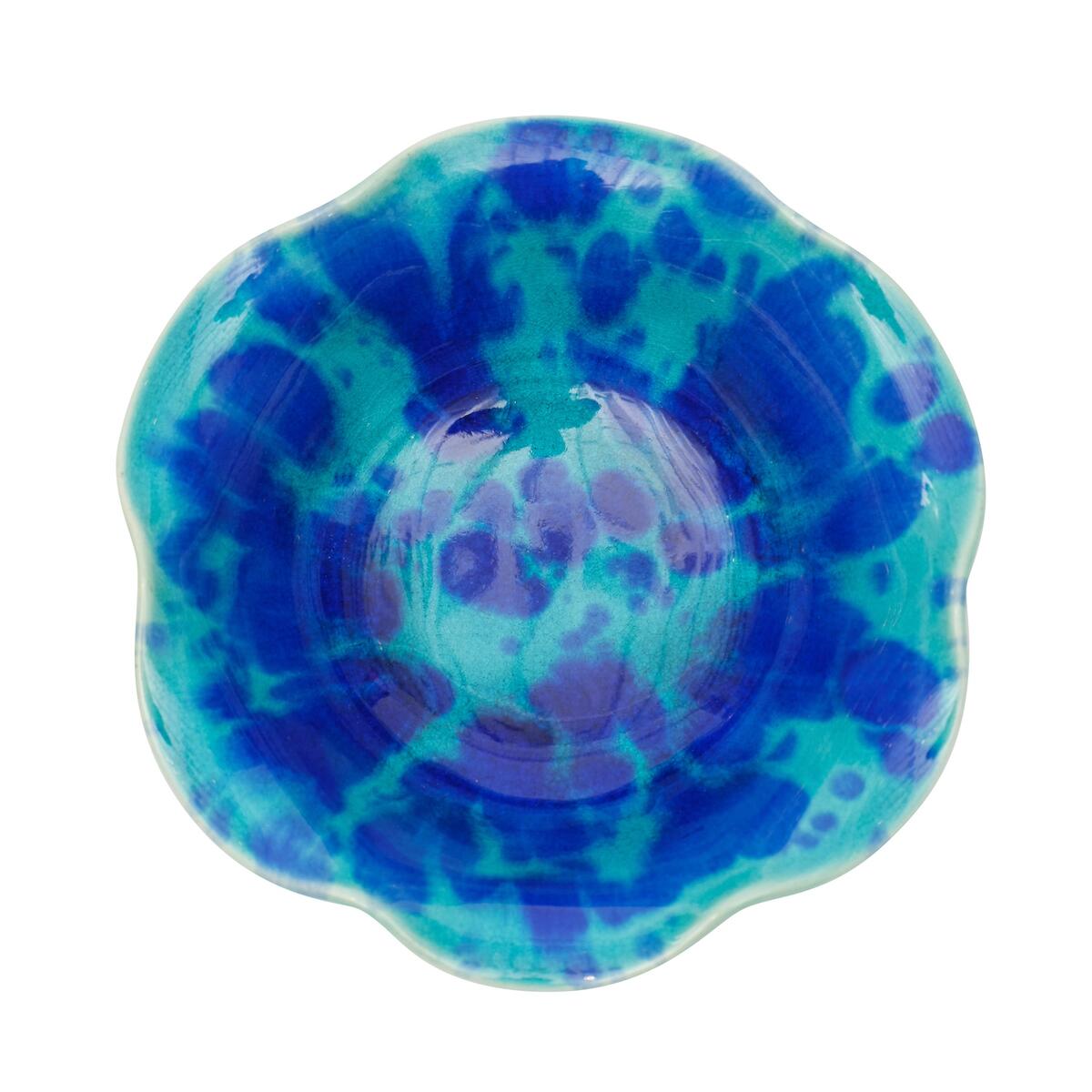Matin Malikzada has been making pottery his whole life. A seventh-generation Afghan master potter, the Connecticut-based artist crafts bespoke pieces adorned in colorful glazes and traditional motifs that pay homage to his heritage. “My work is inspired by my father and grandfather,” he tells Business of Home.

When he was just 7 years old, Malikzada began working alongside his elders in his family’s ceramics shop in Istālif, a village just north of Kabul that was once known as a vibrant center of ceramic art and commerce. As an adult, he served as head of the ceramics department at the Turquoise Mountain Institute—a nongovernmental organization founded two decades ago by Britain’s now-king Charles III to support Afghanistan’s crafts industry—and trained others using his historically informed, technical skill sets. “I was able to open my shop, Feroz Bodhi, in 2012,” says the potter, who also holds a bachelor's degree in law from Tabesh University. “It was around that time, in partnership with Turquoise Mountain, that I was able to begin to sell my work internationally.”
Everything changed in 2021, when the Taliban took over Kabul, and Malikzada and his family were forced to flee Afghanistan. After being vetted by Homeland Security, they gained support from New Milford Refugee Resettlement in Connecticut, where they currently reside while working toward permanent residency. “Along with our four children, my wife, Najila, and I were in exile for about nine months, moving from country to country on our journey to resettle in the U.S.,” he says.

It’s been a long journey, one marked by constant change and the challenges that go with it. Now that the artist and his family are in the process of settling in stateside, he’s learning to adjust to American pottery-making processes while employing the centuries-old skills he gleaned in his native country. “Everything is different here—from the wheel to the kiln, the clay, the glazes, even the climate,” he explains. “I was considered a master [potter] in Afghanistan. However, when I arrived in the U.S., I needed to learn everything all over again.”
All of Malikzada’s designs are hand-sculpted from raw clay at the wheel. With Najila’s help, he often embellishes his pieces with intricate symmetrical etchings inspired by ancient Afghan motifs. “Although Najila did not come from a multigenerational pottery family [like I do], she has learned traditional carving techniques,” he says.

Form clearly plays a pivotal role in his work, but color undoubtedly reigns supreme. Drawing from what he describes as the “earth’s natural palette,” he carefully hand-mixes glazes inspired by old-world Istālif pottery. His signature turquoise glaze, for example, was originally made using the ancient ishkar technique, which requires pigments from a desert plant found only in Afghanistan. “It took over 500 attempts to achieve a similar color using American materials,” he says. “Experimentation is central to my creative process—I am always challenging myself to learn and grow.”
His original works have caught the attention of the interior design industry. He recently collaborated with Bunny Williams Home on an exclusive series of bowls, plates and vases. “Several of the pieces feature a special ruffled-edge design I created solely for this collection,” says the ceramist. “Additionally, there are some solid and multicolor glazes that are only available through this line.”
Looking ahead, Malikzada—who was awarded a Creative Partnership Grant from the Northwest Connecticut Arts Council, as well as a teaching grant from the Connecticut Museum of Culture and History—has plans to introduce new designs into the aforementioned collaboration, while teaching master classes on pottery. “I am excited by and thankful for the opportunities before me in this country,” he says. “From preparing the clay to perfecting the form to mixing and applying the glaze, each step in my process expresses a humble desire to create pieces that enhance an everyday meal or celebration, or simply stir a moment of reflection.”
If you want to learn more about Matin Malikzada, visit his website or Instagram.




























